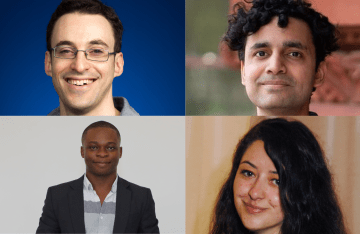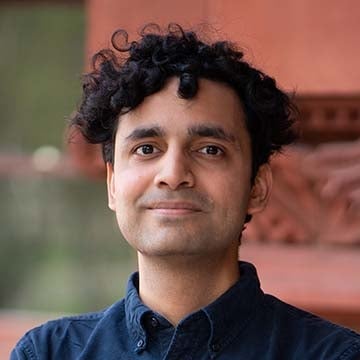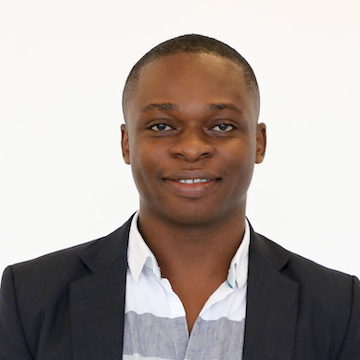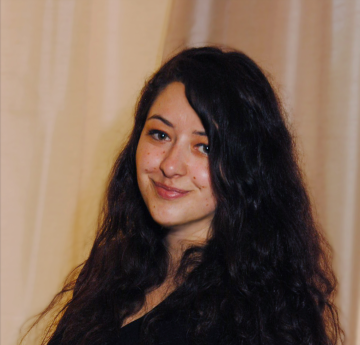
CARGC Postdoc Colloquium
- Annenberg School, Room 500
- Zoom
The colloquium will feature presentations by CARGC Postdoctoral Fellows Yuval Katz, Prateekshit "Kanu" Pandey, Ignatius G.D Suglo, and Eszter Zimanyi - followed by Q&A with the audience.
Schedule and Presentations
12:00 - 1:30 pm | Presentations by Yuval Katz and Prateekshit "Kanu" Pandey followed by Q&A
How Peace Can Be Made Relevant to Ordinary People through Media
Presenter: Yuval Katz, Postdoctoral Fellow, Center for Advanced Research in Global Communication and Center on Digital Culture and Society
Abstract: Peace is usually understood as the outcome of diplomatic efforts carried out by diplomats representing nation-states. Therefore, peace negotiations are an elitist endeavor, often detached from realities on the ground. In this presentation, I will discuss a new theoretical approach that studies peace in the lives of ordinary people. I will argue that media are a key cultural space where such a reimagining of peace can take place. I will demonstrate how the work of media professionals and the texts they produce support creative connections between conflicted communities while insisting that describing rather than prescribing such mediatized encounters is the way to tackle identity problems undergirding violence. Focusing on the Israeli-Palestinian conflict, I will demonstrate these claims by triangulating evidence from Israeli television shows and their production process; the development of a digital activist project for Gaza; and the work of Palestinian journalists in Israeli mainstream news organizations.
Theorizing Political Humor and Effects on Democratic Participation in Contemporary India
Presenter: Prateekshit "Kanu" Pandey, Postdoctoral Fellow, Center for Advanced Research in Global Communication and Communication Neuroscience Lab
Abstract: Political humor, considered a fairly stable genre of entertainment media in the US, refers to entertainment formats that cover political topics (current affairs, institutions, etc.) in humorous formats. Within political humor, televised formats of satire and news comedy produced in the US have gained popularity among media effects scholars in the past two decades. Consequently, these US-based formats of political comedy performances have gained “global” status by accruing popularity among non-US audiences. In India, despite not having a mainstream equivalent to The Daily Show in the US, it is home to a significant audience for such US-produced satirical shows and homegrown shows which emulate US-based satire. “Political humor” and “satire” as a genre are ubiquitous across Indian media and have a rich history going back to the anti-colonial movement in the early 20th century. A growing body of critical literature has studied the content of various formats of political humor and satire being performed in contemporary India, like political cartoons, TV shows, and stand-up comedy. However, we currently do not have empirical evidence to assess the effects of engaging with political humor and satire in India on democratic beliefs and participation. In this talk, I present my current research on mapping out the field of political humor in India, by summarizing the modalities of Indian political humor and theorizing the effects of engagement with such media on democratic participation.
1:30 - 1:45 pm | Coffee & Tea Break
1:45 - 3:15 pm | Presentations by Ignatius G. D Suglo and Eszter Zimanyi followed by Q&A
Transregional Media Flows and Knowledge Production of Africa in Nineteenth and Twentieth-Century Chinese Periodicals
Presenter: Ignatius G. D Suglo, Postdoctoral Fellow, Center for Advanced Research in Global Communication
Abstract: Amidst rising interest in people-to-people relations both in academic research and political discourse within Africa-China relations, this talk highlights the role of knowledge production and circulation of Africa in China as a framework for understanding interactions between people and cultures. It recognizes that media not only are sites for representational practices but are also sites of knowledge production and circulation of people and cultures. I argue that knowledge of Africa in China formed a set of processes, that were in motion over time (temporal) and across space (spatial). I pursue this argument by analyzing popular periodicals produced and circulated in China in the late 19th and early 20th centuries and their role in the production and circulation of knowledge of Africa in China. I pay particular attention to strategies, processes, and entanglements of co-creation of ideas of Africa in modern China.
Living Waste: Mediated Regimes of Disposability along the Balkan Route
Presenter: Eszter Zimanyi, Postdoctoral Fellow, Center for Advanced Research in Global Communication
Abstract: The Balkan Route is one of the primary migratory pathways into the European Union and traverses several nations across Southeastern and Central Europe. In 2015, this route gained global media attention when over one million migrants/refugees from the Global South risked their lives to reach the European continent. In this presentation, I show how migrants and the Balkan Route are relationally transformed through scopic regimes of disposability in nonfiction media. Dominant state and news media discourses produce migrant bodies as “living waste” to legitimate their detention and deportation, and likewise frame the Balkan Route as a natural site for “living waste disposal.” I attend to images of material waste in relation to images of camps, detention centers, and migrants along the Balkan Route to trace the formal, aesthetic, discursive, and representational tropes that help to foment this particular logic of disposability and waste management. I aim to make visible the contradictory role this region plays as a bordering force for the EU that is itself considered undesirable within the European imaginary and show how visually and discursively framing these bodies and sites through disposability functions to justify, and distract from, the EU’s own violent bordering mechanisms.
About the Speakers

Yuval Katz (Ph.D., University of Michigan) is a postdoctoral fellow at the Annenberg School for Communication at the University of Pennsylvania. He holds a joint appointment at the Center for Advanced Research in Global Communication (CARGC) and the Center on Digital Culture and Society (CDCS) at the University of Pennsylvania. His scholarly work explores and problematizes peace by focusing on the experiences of ordinary people captured and expressed in and through media. His upcoming book, provisionally titled In search of a medium: Jewish and Palestinian encounters across media forms, investigates how television, mainstream news outlets, and digital activist platforms bring Jews and Palestinians together in a collective effort to build a better future for themselves. Yuval is also a published poet currently working on a manuscript in Hebrew titled Sous-chef, Sushi, Samurai.

Prateekshit "Kanu" Pandey is a postdoctoral fellow at the Annenberg School, where he also completed his Ph.D. in the Summer of 2022. He currently holds joint appointments between the Communication Neuroscience Lab and the Center for Advanced Research in Global Communication (CARGC) at the University of Pennsylvania. He uses a multimethodological approach spanning computational methods, survey experiments, and neuroimaging techniques to study the role of comedy in politics. Specifically, he investigates the effects of political humor and satire on how we think about and participate in democratic politics. His research has an active comparative focus between the United States and South Asian contexts. Complementing his academic work on humor, Kanu is also a professional improvisational comedian at Comedy Sportz Philadelphia and a teaching artist for applied improvisational techniques.

Ignatius G. D Suglo is a media and cultural historian and a postdoctoral fellow at the Center for Advanced Research in Global Communication (CARGC) at the University of Pennsylvania. He completed his Ph.D. in China Studies at the University of Hong Kong. His research interests include Afro-Asian material and cultural engagements; transregional media histories; and East Asian (digital) media and visual cultures. His current book project examines worldmaking in Global China through analyzing textual, visual, aural, and audiovisual media about Africa from late 19th century China till present. It traces continuities, fractures, and entanglements of co-creation of ways of knowing Africa through popular media produced and circulated in China. His work has been published in Verge: Studies in Global Asias, Journal of Asian and African Studies, and Hong Kong Review of Books.

Eszter Zimanyi is a postdoctoral fellow at the Center for Advanced Research in Global Communication (CARGC) at the University of Pennsylvania. She received her Ph.D. in Cinema and Media Studies from the University of Southern California in 2021. Eszter specializes in global media cultures, migration and refugee studies, and documentary. Her writing on topics such as refugee selfies, humanitarian immersive media, migrant documentaries, and anti-migrant government propaganda is published in the Journal of Cinema and Media Studies (JCMS), Feminist Media Studies, and Transnational Screens, among others. In addition to her scholarly work, Eszter is a curator and film programmer. In 2022, she curated Discarded Visions – a virtual exhibit that explores the political, cultural, and mediating qualities of waste.
Events
View AllDisclaimer: This event may be photographed and/or video recorded for archival, educational, and related promotional purposes. We also may share these video recordings through Annenberg's website or related platforms. Certain events may also be livestreamed. By attending or participating in this event, you are giving your consent to be photographed and/or video recorded and you are waiving any and all claims regarding the use of your image by the Annenberg School for Communication. The Annenberg School for Communication, at its discretion, may provide a copy of the photos/footage upon written request.
